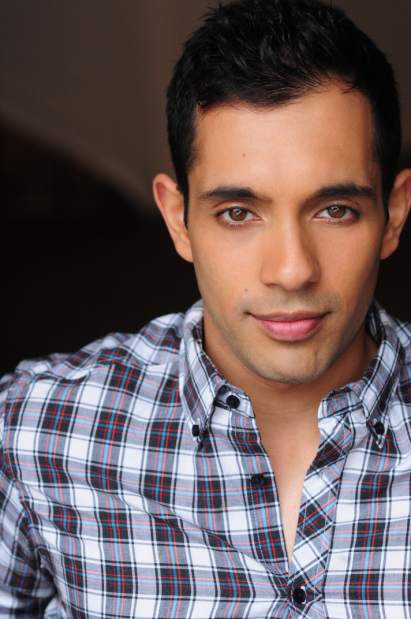So Many Questions: 'The 100' actor Sachin Sahel says fans don't want to see punches pulled
As far as audiences are concerned, the end is nigh.
Feasting on a borderline-obsessive fascination with life in a post-apocalyptic world, viewers can't seem to get enough of the chaotic, catastrophic and dismal predictions of our future here on earth.
For Sachin Sahel, who plays Dr. Jackson on the CW sci-fi drama “The 100,” that interest can be attributed to a desire for wanting to see how we would survive when stripped of our technology and forced to communicate with each other again. Without stringing you along, the show relies on blunt force to convey the chaotic existence of a post-nuclear Armageddon set 97 years in the future. The storyline revolves around the exile of 100 juvenile prisoners from their international space-station home back to earth, on a mission to test whether or not it's habitable. With time running out and people becoming little more than a means to an end, it's survival of the fittest in a world where every decision becomes life or death.
“The 100” can be seen at 9 p.m. Wednesdays on the CW network
Question: Where does one draw the line when it comes to sacrificing a few for the greater good of many?
Answer: It is not one I think I'm at liberty to answer! It's why we have the leaders in this world and the think tanks. Now, the reason that I do love the show is that it asks these questions. It's not necessarily a regular show that would definitely not just ask these questions, but make the decisions in the first five episodes. It's funny how they show both sides of the coin, and they make you make that decision.
I don't like killing anybody — killing 300 people is not a good choice that anybody has to make but in (Kane's) mind (played by Henry Ian Cusick), he's doing it because he wants to preserve life on the Arc as long as he can to see if there's any other options. Sending those kids to the ground, they thought they were expendable because they were in jail and sent down to earth to see if it's inhabitable again.
They're living in this world where the rules are kind of being thrown out the window because they're on a clock. Time is running out, and you either survive or die. And I think they're just doing what they can. They're rats in a cage just doing what they can to try and survive as long as they can.
Q: Is it possible to live in a lawless society, or are there always rules to follow?
A: There are always rules to follow. I think rules are necessary for people and society to know what boundaries are. Because there are some people who — as we know in our society — even if there are rules, run out and break those rules. So, if you don't have them anymore, I think chaos will ensue, and it's not even organized chaos. It's just absolute chaos.
Q: Can people ever unite in times of crisis, or are power struggles inevitable?
A: I think they are inevitable, but it's different. If people are after something, then I think we have that natural thing that the ones in power are going to fight with each other to maintain that power. For example, on the show, if you're running out of oxygen, everyone's going to have to come together to figure out how to make it last as long as possible. They're going to have to figure out how to come together in a way. So, if it's not for selfish means, if it's for means that everybody has to go through, then I think everybody does come together. But I think if we have selfishness and ego show up, that's when the power struggle comes into play.
Q: Audiences can't seem to get enough of the “survival of the fittest” scenarios. What do you think drives that interest?
A: I think people are just looking for real stories these days. Everybody's in this place where we're sitting at our screens all day. We're not communicating with people as much. But, then, we have this post-apocalyptic world where we don't have that anymore. People have to see each other, people have to talk to each other, they have to look at somebody's face when you talk to them.
We get rid of all this technology that we're so stuck on — it's kind of throwback in a way. People want to see how we survive in this new world, and they want to see realism. They don't want to see you pull your punches anymore. And that's what's great about the show, it doesn't pull its punches, it doesn't wait, it doesn't baby you. It shows what would really happen if these people in this dire circumstance were to act the way they acted and make the decisions they had to make. And I think that's what people want to see — realism.
Q: So, are you confident now you could survive in a post-apocalyptic world?
A: Absolutely not! Dr. Jackson is a better man than me — he's such a good dude. I love playing him because of his heart. He has a great heart and wants to do all the good things. But, at the same time, to play him is frightening because he doesn't make any decisions — your life is basically decided for you.
Whatever the decisions are made, you have to go with it. This is it. Because you can't fight time, you have one person that makes the rules for everybody because if everybody tried to make the rules together, nothing would happen and nobody would be safe. So, it's definitely tough.
Kate Benz is the social columnist for Trib Total Media and can be reached at kbenz@tribweb.com, 412-380-8515 or via Twitter @KateBenzTRIB.

